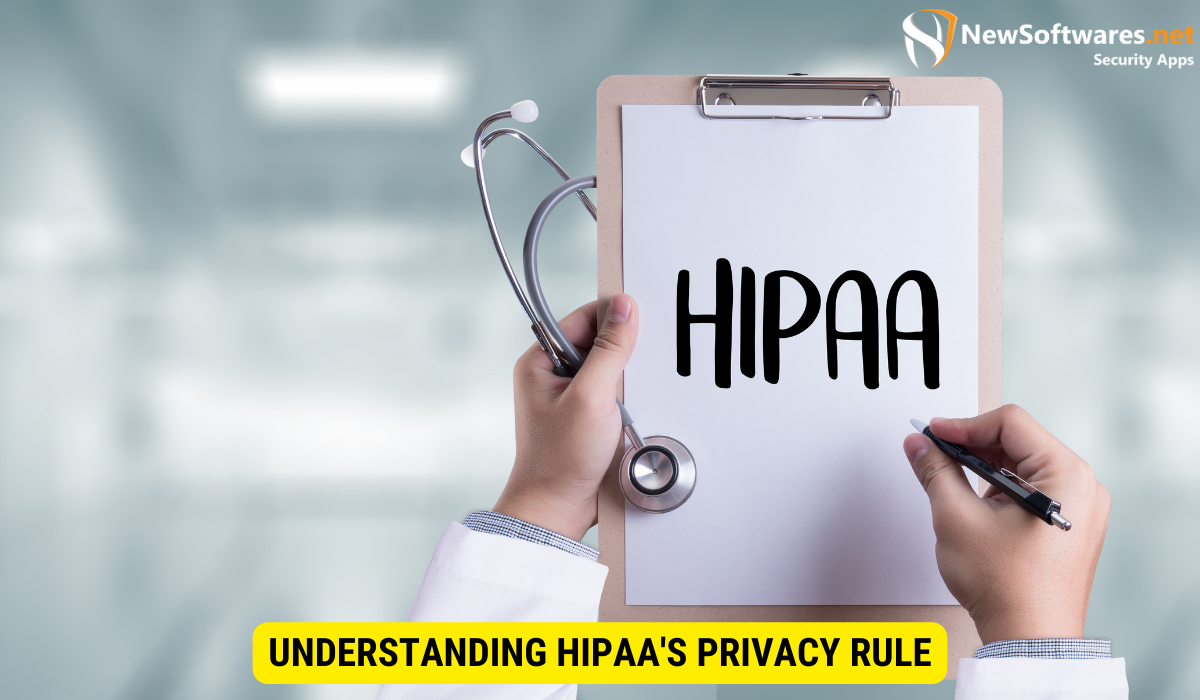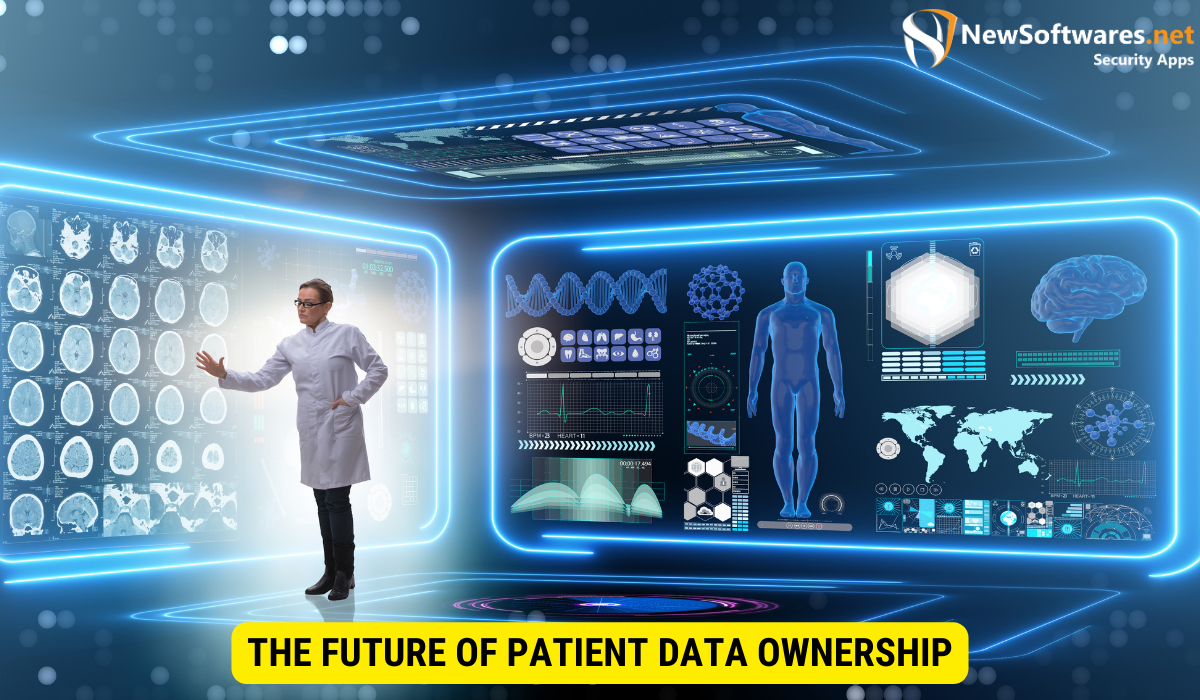Under HIPAA’s Privacy Rule, patient data ownership is not explicitly defined. The rule emphasizes safeguarding patient privacy and promoting data security, granting patients certain rights over their health information but does not establish full ownership. Healthcare providers act as custodians, responsible for protecting and using this information appropriately.
In today’s digital age, patient privacy and data ownership have become pressing concerns for healthcare providers and patients alike. The Health Insurance Portability and Accountability Act (HIPAA) provides guidelines and regulations to safeguard patient data, but it also raises fundamental questions about who exactly owns this sensitive information. Understanding HIPAA’s Privacy Rule and exploring the complexities surrounding data ownership is crucial to navigating this increasingly intricate landscape.
Understanding HIPAA’s Privacy Rule

The Basics of HIPAA:
HIPAA, enacted in 1996, sets forth strict rules and regulations for protecting patient privacy and the security of their health information. The Privacy Rule, a component of HIPAA, establishes national standards for safeguarding patient data and governs how healthcare providers handle protected health information (PHI).
Key Provisions of the Privacy Rule:
The Privacy Rule outlines important guidelines for the use and disclosure of PHI. It grants patients certain rights, such as obtaining copies of their medical records and being informed about how their information is used. Additionally, it requires healthcare providers to implement administrative, physical, and technical safeguards to protect patient data from unauthorized access or disclosure.
One of the key provisions of the Privacy Rule is the requirement for healthcare providers to obtain patient consent before using or disclosing their PHI for purposes other than treatment, payment, or healthcare operations. This ensures that patients have control over how their sensitive health information is shared and used.
Another important aspect of the Privacy Rule is the requirement for healthcare providers to provide patients with a Notice of Privacy Practices. This document informs patients about their rights under HIPAA, including their right to request restrictions on the use or disclosure of their PHI. It also explains how patients can file a complaint if they believe their privacy rights have been violated.
The Privacy Rule also addresses the issue of minimum necessary disclosure. This means that healthcare providers should only access, use, or disclose the minimum amount of PHI necessary to accomplish the intended purpose. This requirement helps to limit the exposure of patient information and ensures that healthcare providers are not accessing or sharing more information than is necessary.
In addition to these provisions, the Privacy Rule also requires healthcare providers to implement reasonable safeguards to protect patient data. This includes measures such as encrypting electronic health records, securing physical records in locked cabinets, and training employees on privacy and security practices.
Furthermore, the Privacy Rule establishes penalties for non-compliance. Healthcare providers found to be in violation of the Privacy Rule can face significant fines and even criminal charges, depending on the severity of the violation. These penalties serve as a deterrent and reinforce the importance of safeguarding patient privacy.
Overall, the Privacy Rule plays a vital role in ensuring the privacy and security of patient health information. By establishing national standards and guidelines, it helps to protect patients’ rights and maintain trust in the healthcare system.
Ownership of Patient Data: A Complex Issue
Defining Data Ownership:
The concept of data ownership becomes intricate in the healthcare industry. While patients are the subjects of the information, they do not necessarily have full ownership rights over their health data. Healthcare providers, on the other hand, act as custodians of this information and have legal responsibilities for its protection and proper use. Ownership of patient data is a shared responsibility rather than an individual claim.
Legal Perspectives on Patient Data Ownership:
The legal landscape regarding patient data ownership varies across jurisdictions. In most cases, patients have limited ownership rights as they cannot sell or transfer their health information freely. However, they have the right to control who accesses their data and under what circumstances. On the provider’s side, they have ownership over the infrastructure and systems that house patient data, but not necessarily ownership over the data itself.
Importance of Data Ownership in Healthcare:
Understanding the intricacies of data ownership in healthcare is crucial for various reasons. Firstly, it helps establish a framework for accountability and responsibility. By clearly defining ownership rights and responsibilities, healthcare providers can ensure that patient data is handled ethically and in compliance with legal and regulatory requirements.
Secondly, data ownership plays a significant role in patient privacy and confidentiality. Patients entrust their sensitive health information to healthcare providers with the expectation that it will be kept secure and confidential. By clarifying ownership, patients can have more control over who can access their data, reducing the risk of unauthorized disclosure or breaches.
Furthermore, data ownership impacts data sharing and interoperability. In order to provide comprehensive and coordinated care, healthcare providers often need to share patient data with other entities, such as specialists or healthcare facilities. Understanding ownership rights helps establish guidelines and protocols for secure data exchange, ensuring that patient information is shared appropriately and with the patient’s consent.
Challenges in Determining Data Ownership:
While the shared responsibility model for data ownership in healthcare is generally accepted, there are challenges in its implementation. One of the main challenges is determining the boundaries of ownership. With multiple stakeholders involved in the collection, storage, and use of patient data, it can be difficult to clearly define who owns what.
Another challenge is the evolving nature of healthcare technology and data management systems. As technology advances and new data sources emerge, the question of ownership becomes more complex. For example, with the rise of wearable devices and health apps, patients generate a vast amount of health data outside of traditional healthcare settings. Determining ownership and control over this data requires careful consideration and adaptation of existing ownership frameworks.
Moreover, the international nature of healthcare and the global exchange of patient data pose additional challenges. Different countries have different laws and regulations regarding data ownership and privacy. When patient data is shared across borders, conflicts may arise, requiring international collaboration and harmonization of data ownership principles.
The Future of Data Ownership in Healthcare:
As technology continues to advance and healthcare becomes increasingly data-driven, the issue of data ownership will remain a topic of discussion and debate. It is likely that ownership frameworks will continue to evolve to address emerging challenges and ensure the protection of patient rights.
Efforts are being made to empower patients and give them more control over their health data. Initiatives such as the “My Health Record” system in some countries aim to provide individuals with a central repository of their health information, allowing them to access and manage their data more easily.
Additionally, collaborations between healthcare providers, technology companies, and regulatory bodies are essential in developing standardized guidelines and best practices for data ownership in healthcare. By working together, stakeholders can create a more transparent and patient-centric approach to data ownership, ultimately benefiting both patients and healthcare providers.
HIPAA’s Stance on Patient Data Ownership
Interpreting HIPAA’s Privacy Rule:
HIPAA itself does not explicitly address the issue of data ownership. Instead, it focuses on safeguarding patient privacy and promoting data security. The Privacy Rule emphasizes that patients have certain rights regarding their health information, indicating a degree of ownership rights related to control and access.
Implications for Healthcare Providers and Patients:
For healthcare providers, complying with HIPAA’s Privacy Rule means implementing stringent data protection measures and respecting patients’ rights to access and control their information. Failure to adhere to these regulations can result in legal consequences and damage to the provider’s reputation. Patients, on the other hand, can have peace of mind knowing that their PHI is protected, and they have some level of control over its usage.
Controversies and Debates Around Patient Data Ownership
Ethical Considerations:
The issue of patient data ownership raises ethical dilemmas. Some argue that patients should have more control and ownership rights over their health data, as it is uniquely personal and intimate. Others believe that healthcare providers, as guardians of patient health, should hold primary responsibility and ownership over this information to ensure its proper use and protection.
Potential Reforms and Their Impact:
Several initiatives and proposals aim to address the complexities of patient data ownership. For example, some advocate for granting patients more ownership rights and control over their health data through consent frameworks. Others suggest establishing collaborative ownership models, where patients, providers, and even researchers share ownership and responsibilities.
The Future of Patient Data Ownership

Technological Advances and Data Ownership:
The rapid advancement of technology, such as the emergence of wearable devices and personalized health apps, further complicates the issue of data ownership. These tools generate vast amounts of patient-generated health data (PGHD), raising questions about who owns and controls this information. Developing regulatory frameworks and ethical guidelines will play a vital role in shaping the future of data ownership.
Policy Changes on the Horizon:
As the landscape of healthcare continues to evolve, policy changes may be necessary to address emerging challenges related to patient data ownership. Striking a balance between protecting patient privacy and ensuring adequate access to healthcare data will be crucial. Policy reforms may include clearer guidelines on data ownership and consent, as well as increased transparency regarding data usage and sharing practices.
Key Takeaways
- HIPAA’s Privacy Rule establishes national standards for safeguarding patient data, but it does not explicitly address data ownership.
- Patients have rights to control and access their health information, but they do not have sole ownership rights over it.
- Healthcare providers act as custodians of patient data and have legal responsibilities to protect and appropriately use this information.
- The issue of patient data ownership raises ethical dilemmas and calls for potential reforms to establish clearer ownership models and consent frameworks.
- As technology advances, data ownership becomes more complex, requiring the development of regulatory frameworks and ethical guidelines.
FAQs
Does HIPAA’s Privacy Rule specify who owns patient data?
No, HIPAA does not explicitly address data ownership but focuses on protecting patient privacy and data security.
What rights do patients have under HIPAA regarding their data?
Patients have the right to access, control, and request amendments to their health information.
What are healthcare providers’ responsibilities under HIPAA?
Providers must protect patient data from unauthorized access and use it appropriately, respecting patients’ privacy rights.
Can patients sell or transfer their health data?
Generally, no. Patients cannot freely sell or transfer their health data but can control who accesses it.
What happens if a healthcare provider violates HIPAA’s Privacy Rule?
Violations can result in legal consequences, including fines and damage to the provider’s reputation.
Conclusion
In conclusion, the issue of patient data ownership is complex and multifaceted within the realm of HIPAA’s Privacy Rule. Patients have certain rights and control over their health information, but ultimately, it is the responsibility of healthcare providers to safeguard and appropriately use this data. Ethical considerations, potential reforms, and emerging technologies further complicate this topic. As we move forward, striking a balance between privacy protection and access to healthcare data will be essential, and policy changes may shape the landscape of patient data ownership in the future.
